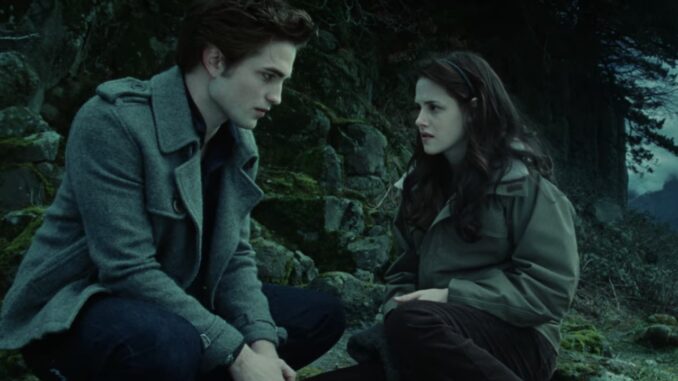
The blue light of a phone screen flickers across a Gen Z face, illuminating a scene of rain-slicked Pacific Northwest angst. On the display, a clip plays: a brooding vampire, a clumsy human, a declaration of undying, slightly possessive love. It's Twilight, of course, but not as the millennials knew it. For this new generation, the discovery of Stephenie Meyer’s iconic, oft-maligned saga is less an eager dive into a cultural phenomenon and more a serendipitous stumble, an algorithmic suggestion that quickly morphs into a full-blown archaeological dig into the recent past.
Their journey into Forks, Washington, rarely begins with a heartfelt recommendation or a nostalgic rewatch. Instead, it’s through the fragmented, digestible lens of TikTok. A 15-second soundbite of Edward Cullen's "Say it out loud" followed by Bella Swan's hesitant "Vampire" loops endlessly. A montage of Kristen Stewart's nervous lip-biting set to a trending audio. An ironic appreciation for Robert Pattinson's intensely serious delivery of lines like "You are my life now." The initial hook often comes cloaked in a veil of irony, as Gen Z's sharp, meme-trained eyes dissect the melodrama, the fervent declarations, and yes, the famously sparkly skin of the Cullens. It’s an easy target for a laugh, a low-stakes exploration of early 2000s cringe.
But then, something shifts. Beyond the initial scoff and the quick share, a curiosity sparks. The algorithm, having successfully piqued their interest, begins to offer more. Full scenes, behind-the-scenes tidbits, fan theories both old and new. And slowly, almost imperceptibly, the irony begins to peel away, revealing a surprisingly potent core. They might start watching the films—or, for the truly dedicated, even reading the books—not just to mock, but to understand.
What Gen Z often discovers beneath the layers of dramatic gazes and questionable fashion choices is an unexpected comfort. In a world saturated with complex narratives, moral ambiguities, and the constant hum of real-world anxieties, Twilight offers a simpler, almost primordial escapism. It’s a story where the stakes are clear (love, immortality, a slightly menacing werewolf), and the emotions are grand. Bella Swan, for all her passivity, becomes a relatable vessel for universal teenage desires: to be seen, to be chosen, to be loved with an all-consuming intensity. The foggy forests of Forks, the melancholic soundtrack, the sheer earnestness of it all—it creates a sepia-toned melancholy that, surprisingly, resonates. It’s the media equivalent of a weighted blanket, a predictable, warm embrace.
This comfort often blossoms into a genuine, if still slightly self-aware, affection. Gen Z isn't blind to Twilight's flaws; in fact, they’re acutely aware of them. They can dissect the problematic elements of Edward’s possessiveness or Bella’s lack of agency with a critical eye honed by years of deconstructing media. Yet, simultaneously, they embrace it. It’s the "problematic fave" par excellence. They understand it as a product of its time, a cultural artifact, and find joy in its earnest, unfiltered romance. The conversations online move beyond mere meme-making to earnest discussions: Team Edward vs. Team Jacob gets re-litigated with fresh perspectives; character motivations are analyzed; even the infamous "baseball scene" is celebrated for its unique blend of absurdity and charm.
For many, Twilight becomes a digital campfire around which they gather. TikTok and Twitter become forums for shared discovery, where new fans bond over inside jokes, create their own aesthetic edits, and collaboratively dissect the saga. This communal aspect is crucial; Gen Z thrives on shared experiences and collective understanding. They don't just consume media; they engage with it, transform it, and build communities around it. Twilight, once the subject of fervent, often isolating, fandom wars, is now a shared sandbox for collective nostalgia and ironic, yet genuine, appreciation.
In essence, Gen Z's discovery of Twilight is a fascinating case study in media consumption. It’s an illustrative example of how a generation, armed with a healthy dose of irony and an insatiable appetite for content, can unearth, re-evaluate, and ultimately, reclaim a cultural phenomenon. They peel back the layers of pre-existing hype and derision, finding their own truth in the sparkly vampires and angst-ridden romance. They aren't just watching a series of films; they're experiencing a cultural time capsule, finding solace in its simplicity, and forging connections in its shared absurdity. And in doing so, they prove that some stories, no matter how earnest or how critiqued, possess a timeless, almost immortal, ability to capture the hearts of new generations, one ironic TikTok clip at a time.
